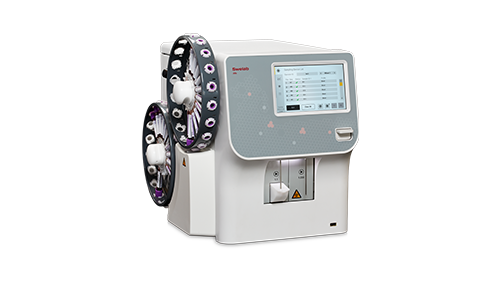Intestinal parasites, such as helminths (worm-like parasites) and protozoa (single-celled eukaryotes), constitute a major public health problem in many regions (1). These parasites cause significant morbidity and mortality in endemic countries and are among the list of targets in WHO’s roadmap for combatting neglected tropical diseases (2, 3).
Decreased HGB, RBC, and MCV and increase in WBC in affected patients
Researchers at the Erbil Health Technical and Medical College, Erbil Polytechnic University in Iraq have studied the correlation of intestinal parasite infections with hematology parameters using a Swelab hematology analyzer (3). A total of 88 patients with gastro-intestinal tract problems of both genders and different age groups were included in the study. The results indicate a correlation between intestinal parasite infection and a decrease in hemoglobin concentration (HGB), red blood cell (RBC) count, and mean corpuscular volume (MCV) and an elevated white blood cell (WBC) count in the study group.

Swelab Alfa Plus was used when studied the correlation of intestinal parasite infections with hematology parameters
Supporting an enhanced outreach in hematology testing
Pathogen-specific tests such as PCR and immunoassays can provide rapid and accurate test results, but their relatively high cost per test can omit their broad use in affected communities. A complete blood count is relatively cheap, however, sometimes require that samples are sent to the central laboratory for testing. Such a setting can pose a challenge to field testing in remote areas, as it can be difficult to transport the blood sample to a laboratory on the day of collection in many regions.
Boule automated hematology analyzers have a compact, benchtop design suitable for rapid on-site testing, reducing turnaround time by omitting the need to send samples away for analysis. Results from a complete blood count, including a WBC differential count, are available in about one minute from sample aspiration.
In addition to analyzing venous blood, the analyzers offer the capability of reporting a complete blood count from a finger-stick sample. Blood collection from a fingerstick is sometimes perceived as easier on the patient.
Tailored to decentralized hematology analysis, Boule hematology systems enhance the outreach of diagnostic testing.
Learn more
Read more from the article Hematological indicators for neglected tropical diseases.
References
- Prevention and control of intestinal parasitic infections. Report of a WHO Expert Committee [meeting held in Geneva from 3 to 7 March 1986]: World Health Organization (1987).
- WHO: Global report on neglected tropical diseases 2024. ISBN 978-92-4-009153-5 (2024).
- Hamad et al. Correlation between intestinal parasites and some blood tests. Bachelor’s thesis (2023).


